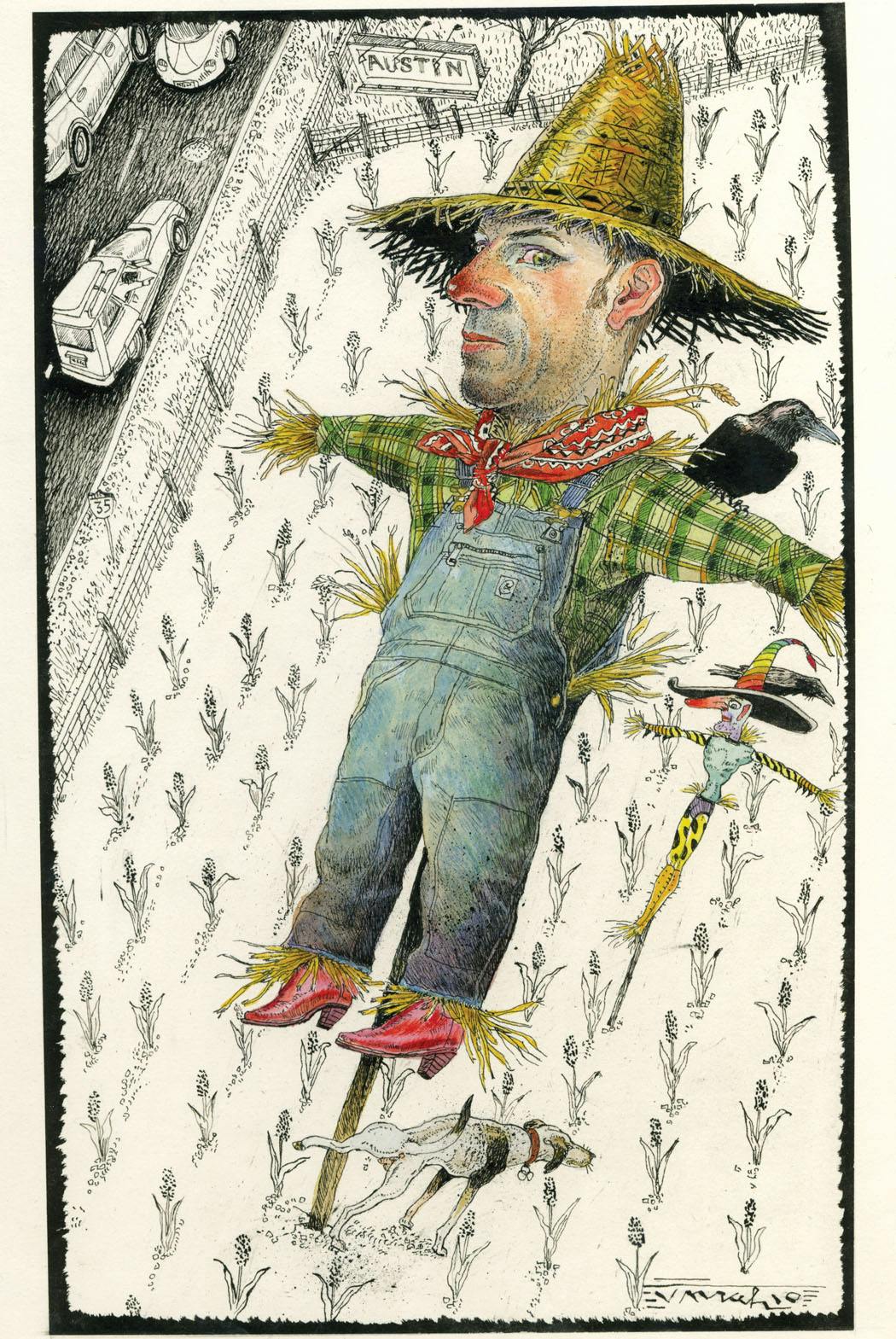
Q: On a recent family vacation my son asked from the backseat what was being cultivated in all the fields we were passing. I hadn’t the faintest idea, but I told him it was wheat. How bad was this lie? And what exactly is growing in those South Texas fields?
Bob Talbot, Arlington
A: Welcome to the Texanist’s world. His keep is earned by way of handling inquiries such as these. In fact, he sometimes likes to imagine, when staring at another bulging mailbag, that he is merely driving down the highway of life while readers lob questions “from the backseat.” And though as a rule he responds to his inquisitors with the strictest fidelity to verifiable data, he is well aware that questions from the actual backseat of a moving car have been answered improvisationally and with only casual attention to the truth since before there was a backseat. Or a car. Or even a paved highway. As in your case, the inquisitors are more often than not hypercurious offspring bent on getting immediate answers to the obscurest of mysteries. “Who invented mustard?” “Can chocolate go to heaven?” “Do butterflies poop?” “Why is that policeman chasing us?” “Aren’t you going to stop?” “Will I be able to visit you at the penitentiary?” Et cetera, et cetera, ad infinitum. The important thing to keep in mind is that when the subject matter concerns roadside attractions, there are very few recourses to which a skeptical child may turn, since by the time the question has been fielded and the reply considered, the curious crop or machinery or mime troupe has already been left far behind. So go ahead, have some fun. In truth, those fields might have been planted with anything. From alfalfa to zoysia, if it grows under the sun, it likely grows in Texas. Wheat? Why not? It could have been wheat. It could have also been gum stalks, doughnut vines, or orange juice grass. When the truth is available, it is generally advisable to use it, but in its absence there is little harm to be found in employing the improvisational arts, so long as you are doing 65 down an open road. Buckle up and drive friendly.
Q: If Texas had a state dog, what would it be? I’d have to say an Australian cattle dog (blue heeler) due to their intelligence and outstanding work ethic. Sounds like a Texan to me. What is your take on this?
Cody Spurgeon
Charleston, South Carolina (physically); Uvalde (mentally)
A: Shortly after receiving your e-mail, the Texanist received your postscript in which you told of its having been subsequently brought to your attention that the blue Lacy was named the official state dog breed of Texas in June 2005 and that the news had probably gone unnoticed to you because your focus at the time was on your military service (for which thank you very much). Nevertheless, the matter of how our state’s official symbols are chosen had already triggered the Texanist’s thought process, which, like an untrained puppy, is nearly impossible to call back. It is clear, for instance, that the Legislature does not discriminate against potential state symbols on the basis of country of origin, meaning that were the blue Lacy unavailable, your Australian cattle dog might just fit the bill. Most of our symbols do hail from Texas (our fruit, the Texas red grapefruit; our gem, the Texas blue topaz; and our reptile, the Texas horned lizard, to name just three), but our official state cooking implement is the Dutch oven and our official state flying mammal is the Mexican free-tailed bat. In light of the many cultural strands that constitute the great state, the Texanist considers it an admirably tolerant immigration policy to simply say, as you put it, “Sounds like a Texan to me.”
Q: My fifteen-year-old daughter has been dressing more and more provocatively this summer, and her mother doesn’t seem to give a hoot. When I say something, I’m either mocked or ignored. What’s a caring father to do?
Name Withheld
A: It is not unusual for a girl on the precipice of young womanhood to adopt a style of dress that causes her father to have deep reservations. As well as feelings of discomfort. And worry. And appointments with real estate agents in remote and uninhabited corners of Saskatchewan. The Texanist doesn’t know if it will make you feel any better, but the important thing to remember here is that it doesn’t matter what you do or say. Right around the time that she acquires her first halter top, a girl begins to develop an inability to hear her father’s or her mother’s voice. This has been scientifically proved, though its evolutionary advantage is unclear. The Texanist must therefore advise you to retire to the garage for a cold beer, a good head-scratching, and a long, long prayer.
Q: During a recent road trip from Fort Worth to Chicago, then over to Ithaca, New York, it occurred to me that none of the water towers we saw bragged about high school athletic achievements. This brought two questions to mind: First, do you think this is unique to Texas? And second, should there be some sort of protocol that Texas towns should follow as it relates to the age and/or importance of the achievement? In other words, should “Jacksboro ’63 2A Football Champs” or “Cameron Yoe ’88 3A Cross Country Champs” still be recognizable achievements?
Terry Crump, Fort Worth
A: The Texanist would be remiss in not pointing out that in 1963 it was Rockwall that bested Sugar Land Dulles 7—6 for the 2A state championship. Jacksboro went all the way the previous year, licking Rockdale 52—0. You are also mixed up about Cameron Yoe’s records in cross-country, although they did win state titles for football in 1981 and a one-act play in ’92. State championships provide us with thrilling moments of greatness, and greatness has no date of expiration. The prizes for sporting feats (and theatrical feats) such as these are not handed out willy-nilly to all contestants who raise a hand. They are hard-earned, requiring the selfless giving of a full ten percentage points beyond that which is even mathematically possible. They are important and matter to the communities that own them (hence the Texanist’s schoolmarmish correction of your hypothetical examples). State championships of any magnitude should be acknowledged and given the recognition due them in both the corresponding annals to which they belong and, if a town so chooses, in large block print across its water tower.








